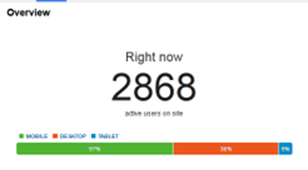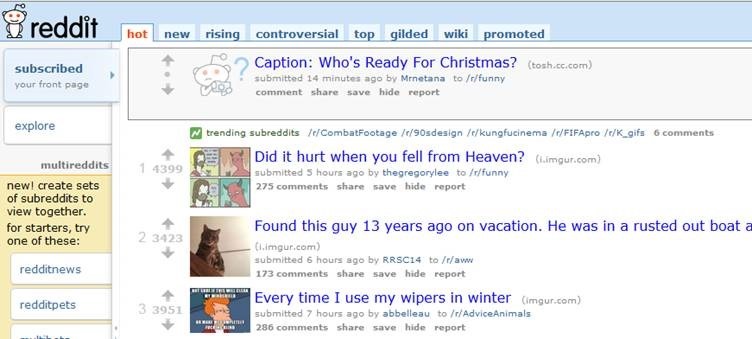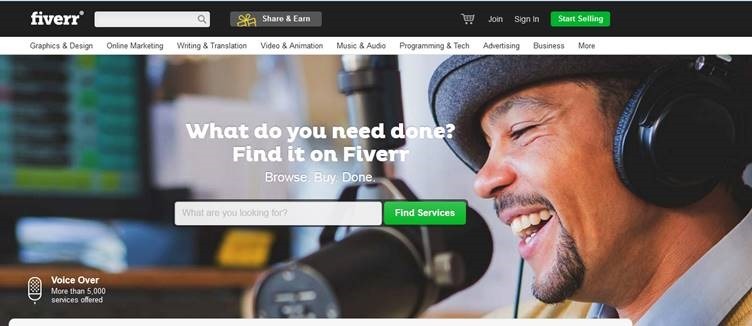We all want to increase the traffic levels to our blogs, right? After a great year in 2014 that saw my client's blog traffic grow substantially, We have targeted an even greater increase in the New Year.
Last year was about establishing the blog, and trial and error to find out what it was that got the traffic in place. Heavy analysis over Christmas allowed us to prepare for 2015 and as you can see from the above image, it's been an epic start.
Here are the tactics we used to and continue to use today, to increase and continue increasing traffic to our client's blog:
Tactic #1: Early Start!
Each day set aside some time for one or more people to work on the blog. For this client we found we increased traffic at a good rate when they invested 2-3 hours per day.
If you're in a start-up or a one-man blog where you have to write the content yourself - it can be useful to get up early and get cracking on with the work before the sun comes up. If it's a personal blog, getting up early gives you the time to invest 2-3 hours and schedule your posts throughout the day. I advise getting in the habit of waking up early if you don't already! Or, make time in the evenings or find time during the weekend.
Tactic #2: Give Your Audience What They're Searching For
A rule that seems so obvious, but is easily broken.
If your audience are coming, and returning to your website searching for information on X, give them (more and unique) information on X.
If information on Y had a high bounce rate, low shares in comparison to X, scrap or lower the rate of information on Y.
Or test to see if Y is better sent out at a better time of the day, week or year.
Tactic #3: Introduction/Hook Your Readers
Once you're attracting more and more visitors to your website, you want to keep them there. Keep them there for more than 5 seconds at least.
A solid introduction to each of your blog posts will help keep them on your site and get into the juicy part of the content. It seems with each passing year our attention span gets shorter and shorter - more distractions, more activities in our life. So you may only get a few seconds, a few sentences, a few words to keep the visitor on your site - that's the opening of your blog post.
If you have low average session duration, try really hard to improve your introduction and hook to see if you notice a decrease in bounce rate and an increase in session duration.
Tactic #4: Make Predictions
If you decide to make predictions and they turn out to be correct, consider 'boasting' about this as a way to further increase your audience and gain additional attention.
Should you or your client be an authoritative figure in your niche, predictions may come with more risk, but they certainly come with the result of being picked up and quoted by others too - that can lead to links, referral traffic, higher rankings etc.
Tactic #5: Search Engine Optimisation
It goes without saying that you'll need your website to be well-optimised if you want to rank in Google these days and pull in organic traffic. There's plenty of advice out there and if you need professional help, you can always employ an SEO agency to help you out.
Make sure your website is working properly from the start and is optimised for mobile too as this is traffic from these makes up a large percentage for most sites these days.
Tactic #6: Flagship Content
Key for keeping your traffic up on days when your latest posts don't turn out popular - or if you haven't published anything that day or week: flagship content that remains fresh for a long period is excellent for providing regular traffic.
Certainly not easy to rank for competitive keywords at the start, but if you provide the best for each topic you will rise to the top over time due to volume and naturally inherited links. If you're not number one in Google for that keyword, it's likely because someone's doing it better than you and/or are more popular. You can change this overtime.
If you can give your audience value then they're going to come back, likely time and time again until/unless your value decreases.
Tactic #7: Link + Social Bait
Some SEO advice from Matts Cutts. Back in 2006, the head of Google webspam team advised us via his blog about the uses of link bait - creating great content that will naturally inherit links and social shares.
If you're not the most gifted when it comes to creating apps, images and all the fun stuff, there are places like Fiverr, PeoplePerHour and Freelance.com to get help with these kind of projects.
These, and great content make up the bait. Data, opinion pieces, even a list of quotes can be great link and social bait - articles that both naturally get shared and also, get shared and linked to when you send a polite email to specific webmasters letting them know this information is probably useful for their audience.
Tactic #8: Lists
Lists remain popular. Yes, I think they're often lazy or too easy to generate and sometimes leave you feeling sleazy after publishing them, but I cannot deny that they can be great for traffic and picking up shares.
You can build lists around any subject - something in the news, something topical, something for a certain time of year. You can even read others' old lists and make newer or improved versions. And yes, this article itself is a list...
I wouldn't suggest relying on lists though.
Tactic #9: Attractive/Quirky Website
Most people are turned off when landing on a 1995-looking website (unless it's Space Jam). Give your audience something fresh and funky. Make sure your website has a look and feel as if it's 2015 and not something that was made two decades ago.
As great as your content there are people out there that won't want to come back if the look of your website gives them a negative opinion.
Likewise, assuming you get lots of mobile visitors, make sure your website is responsive too.
Tactic #10: Headlines
One trick we used to great success was to use popular or trending keywords in our articles' headlines. The more popular something is, there more searches there are for that, therefore increasing the amount of people that will want to read your piece(s) and the more people searching to find them.
Users will go anywhere for the latest and breaking news (Twitter is a great place for users to search). If you're in an industry like our client's, where you can beat the authoritative sites in getting the news out, then you're in a great position to get a lot of traffic. In our case, here in the UK, the BBC are pretty slow and British newspapers are a split between being on the ball and being slow - which gave us plenty of opportunities to get traffic and viral posts.
Headline writing is an art. Practice, practice, practice.
Tactic #11: Reddit
Where to start when you have no traffic? Reddit was the place we went when the blog had no traffic, and after we had great content to share. Please don't abuse Reddit though - no one will take kindly to that and you will lose popularity this way.
Our rule is to share only the very best pieces and only if no one else has shared them. If you can, get your writers or partner websites (tactic #19) to publish them instead of you so that your profile is not the only one sharing your website links.
The idea is that in time you'll never need to share your own content on Reddit because other people are finding it and enjoying it that they will do it for themselves.
Tactic #12: Make It Easy To Share Your Content
The basic rule of any blog (but not always undertaken) is make it easy to share your content. Share buttons at the top around the headline and at the bottom after the final sentence worked for us. We found that Twitter and Facebook share buttons were sufficient for us - Google+ got no interactions so we ditched it.
Depending on your industry and the social profiles you use, you may want to add Google+, Pinterest etc. Certainly worth trialling a few to begin with to see what works best, but generally you can't go wrong with Twitter and Facebook because everyone uses them and uses them to share content.
Tactic #13: Scheduling/timing
Test, test, test! It's the best way to find out the time and day of the week to publish articles for peak traffic.
We had the fortune of publishing articles on a daily basis so really we were only left with working out the time of day to schedule our posts in for. Getting to work before the sun comes up also allowed us to schedule them in for any time that day.
If it's breaking news of course you will want to get it out as quickly as possible. For our client's niche, Twitter has been awesome for this - allowing us to beat the newspapers, BBC etc. by several minutes in publishing our articles and getting several ReTweets and interactions as a result. This only happens once every blue moon of course but it's a joyous scene when it happens!
Tactic #14: Promote + Re-promote Your Top Posts
If you're producing more than news on your website; content that's still relevant after today, you can promote this more than once. Later down the line you may wish to publish it on your social accounts or even in your newsletter.
If it was a popular post when it first went live, it's likely that more people will want to read it but that they simply never saw it the first time around.
Tactic #15: Build Credibility
One way to increase return and new visitors is to build credibility of your blog - to become a trusted and reliable source.
Quality content, or flagship content as we sometimes call it - the stuff that will naturally inherit you links and continue to bring traffic back to your website can result in bonus traffic.
Building credibility can also be achieved by guest blogging, or getting a regular blogging spot on a more authoritative site. Doesn't have to be blogging either - people will search for your name or your company's name if your client is in the news, on TV, radio etc. They all assist to building your credibility.
Tactic #16: Build An Email List
There's not a lot you can do wrong by setting up an email list. As long as you can afford the facilities and have the time to be consistent in sending out your emails/newsletters that it.
An email list gives you the opportunity to send a regular email to your audience who have opted in to receive your content - presumably because they enjoyed your content in the first place.
You will need to work out what is the best frequency of sending email - it varies from site and niche. You may find success in daily, weekly or monthly. Then working out the best day(s) of the week and time of day to send your emails out is your next priority.
Begin collecting email addresses via a sign up form and/or popup. Be careful the latter doesn't annoy your audience though!
Tactic #17: Fun Images, Images That Will Get You Retweeted
This one depends on your niche. For ours, a little bit of comedy worked a treat. Memes, funny videos, these kinds of fun things were useful in getting ReTweets and Facebook Likes/Shares. In turn, this helps increase your social audience, which helped build our blog traffic a little.
If you're only publishing articles and videos on your blog post that you own the rights to then you're going to need to create them yourself. For a few dollars Fiverr is your best friend. Fiverr is awesome.
Tactic #18: Invite Bloggers To Blog
Bloggers have their own audience to share with, and their own opinions to generate additional traffic. It's worth considering inviting bloggers in your industry to contribute to your website, on a regular basis if possible.
Our client agreed to sending an expensive prize at the end of each month for the 'best contributor' of the month (I'll keep secret what determined them as the 'best') but if you can't give them financial incentives - you're at least offering them a new audience for them to gain exposure too, and a link.
Tactic #19: Team Up With Other Big (Bigger) Blogs To Share Each Other's Content
Can be a tough one depending on your social and negotiation skills. If you can link up with other blogs in your niche that aren't competitors, teaming up to share each other's content and recommend each other's posts to one another's audience becomes an easy way to increase your traffic.
The SEO industry is a great example of this - guest posting on each other's sites, sharing each other's posts on Twitter etc. We're such kind people to one another 😉
Tactic #20: Encourage Engagement/comments (Leave A Question At The End)
Leave a question at the end. Force them to ask a question at the end. Something that gets your readers to engage helps them remember your site and content. Also, there's a great WordPress app that asks them to sign up to your email list after posting a comment. Nice way to get email signups, right?
Comments on blog posts makes them appear/shows they are popular which we believe is a good way to keep new visitors coming back to your website. Naturally, if people are interacting with your blog, there's probably a good chance they like it and are returning.







